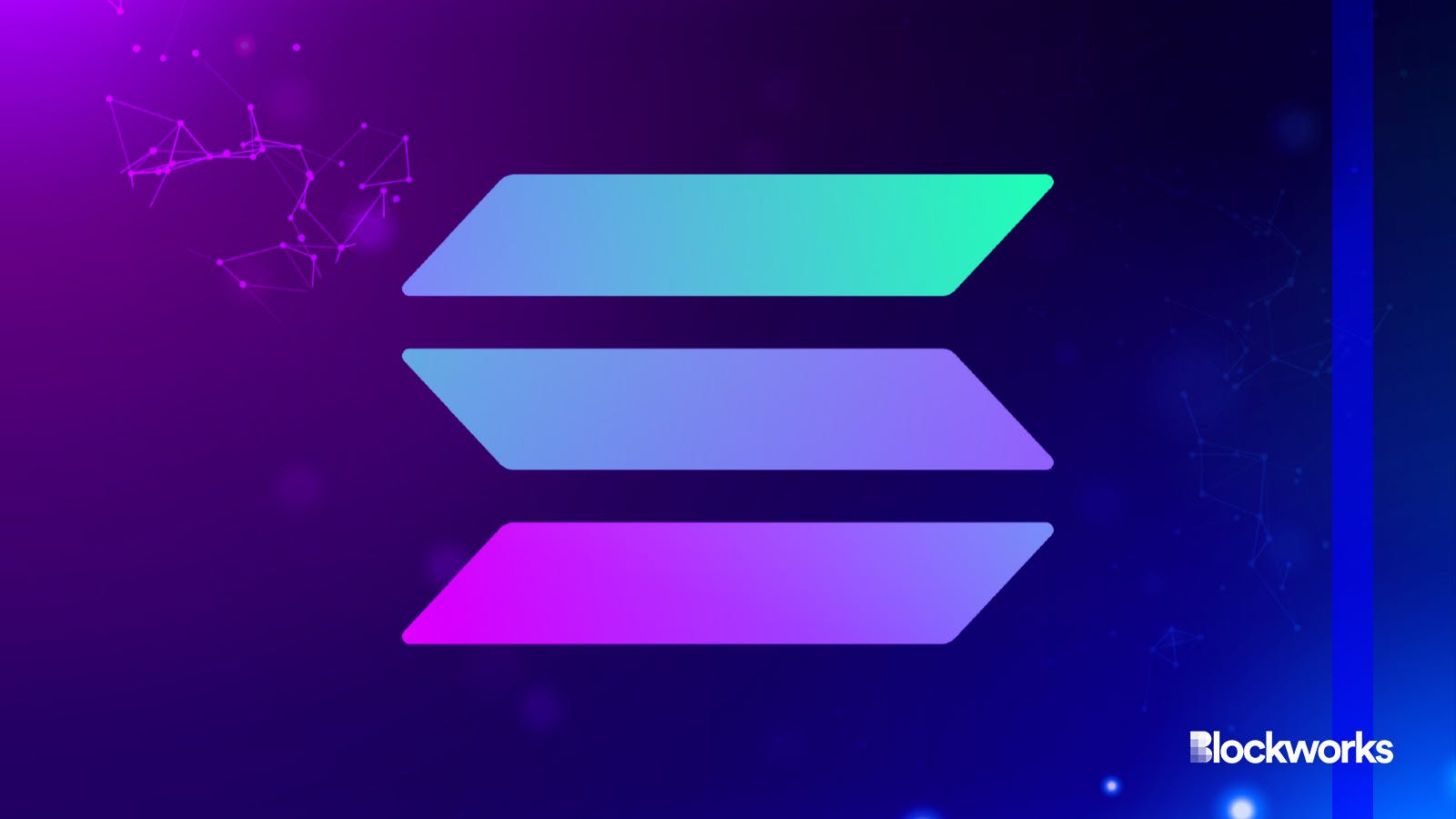Solana congestion culprit Ore wins $50K from hackathon
The Solana proof-of-work project took off in early April

Kolonko/Shutterstock modified by Blockworks
On Monday, the experimental currency Ore won $50,000 from a Solana Foundation-supported hackathon focused on identifying Solana’s “next wave of high-impact projects.”
“High-impact” presumably refers to Ore’s potential for making a positive change to Solana’s adoption figures. But so far, Ore’s impact has been more like a gut punch: The project halted mining in mid-April after the avalanche of network usage from mining the currency made it difficult for Solana users to get their transactions included in blocks.
Ore is an experiment in using the proof-of-work security mechanism on the Solana blockchain. PoW systems essentially pay miners native currency rewards in exchange for computing power that makes blockchains difficult to attack. Bitcoin is secured in this fashion, in contrast to Solana, which combines a system called proof-of-history with proof-of-stake, Ethereum’s chosen consensus mechanism.
Read more: Solana price falls further as Ore suspends mining on the network
Ore rewrote a more egalitarian version of the Bitcoin protocol as a Solana smart contract, the project’s pseudonymous creator Hardhat Chad explained in a demo video. Unlike Bitcoin, which gives 3.125 bitcoin to the fastest miner to return a certain cryptographic hash every ten minutes, Ore is set up where multiple miners can win a sliver of the network’s block rewards. An average of one ORE is created every minute, split between successful miners.
For many in Solana’s speculation-loving ecosystem, the idea of “Bitcoin on Solana” was simply too juicy to pass up, and Ore mining transactions drove up activity and soon clogged the network. One miner posted about “blindly sending millions” of transactions every second in hopes that some would land.
Amid the flurry of usage, Solana users saw more and more of their transactions being dropped rather than included in blocks, and Solana developers rushed to patch the overloaded network. Perhaps mercifully, Ore temporarily ceased mining on April 16. Soon after, Solana released a network upgrade to help ease the congestion.
Read more: Empire Newsletter: Solana patch targets congestion woes
In an X post announcing the mining pause, Hardhat Chad said Ore had become Solana’s most-used program by transaction count within two weeks of launching. Solana could thank Ore for the stress test, but the project would be redeploying a better-constructed v2, the developer intimated.
Ore mostly disappeared from view before winning the “Solana Renaissance” hackathon, which was judged by key figures in Solana’s ecosystem, including the chain’s co-founders Anatoly Yakovenko and Raj Gokal. Colosseum, which runs Solana hackathons including this one and makes venture investments in some of the winners, has said the contest drew over 1,000 entries. The Solana Foundation, a non-profit supporting Solana’s ecosystem, is a limited partner in Colosseum’s venture fund.
Solana’s thought leadership seems to believe a second iteration of Ore can be less chaotic than the first go-round.
“The network should handle anything like this,” Jon Wong, ecosystem engineering lead at the Solana Foundation, told Blockworks. “It’s not about Ore in particular, it’s about continuous stress testing the network in order to get better.”
Hardhat Chad is optimistic as well.
“Ore exists for one reason: to provide the world with a fast, cheap, private, inflation-proof digital currency everyone can mine,” Hardhat Chad wrote on X in celebration of the hackathon win.
Ore v2 is “[f]eature complete” and currently running simulations while awaiting audits, Hardhat Chad said Monday.
Those who got their hands on the Ore that was mined before the halt are growing richer in the meantime. The token’s price rose more than 90% Monday after the announcement, according to CoinGecko, trading hands at around $228 at press time.
Start your day with top crypto insights from David Canellis and Katherine Ross. Subscribe to the Empire newsletter.





